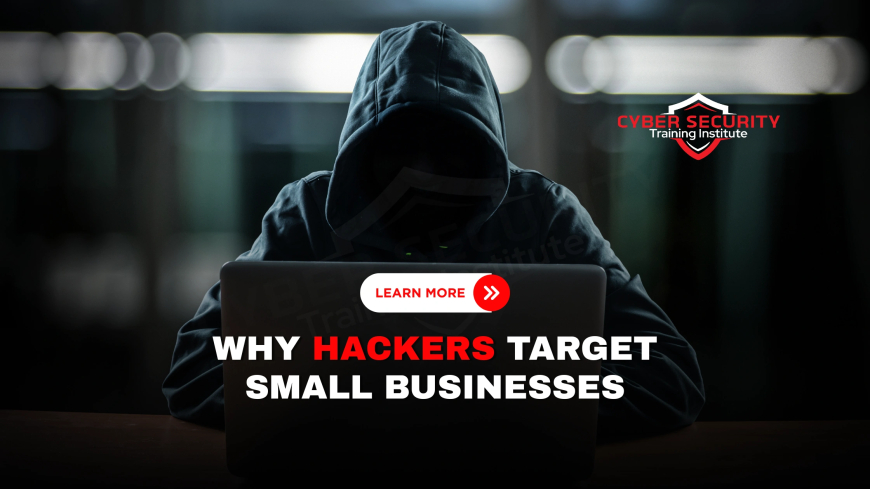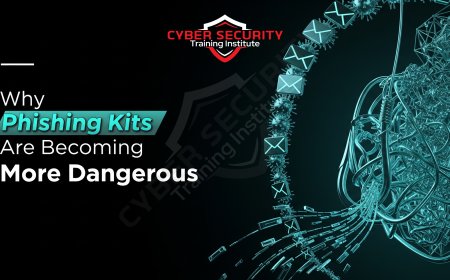Why Small Businesses Are the New Favorite Targets for Hackers
In today’s digital age, small businesses are increasingly finding themselves in the crosshairs of cybercriminals. While large corporations often dominate headlines with high-profile data breaches, hackers are quietly shifting their focus to smaller enterprises. Why? Because small businesses offer a tempting combination of valuable data, limited security resources, and a false sense of safety. This blog post explores why small businesses have become prime targets for hackers, the risks they face, and practical steps they can take to protect themselves. Whether you’re a small business owner or simply curious about cybersecurity trends, this guide breaks it down in a way that’s easy to understand.

Table of Contents
- The Growing Threat to Small Businesses
- Why Hackers Target Small Businesses
- Common Types of Cyberattacks
- The Impact of Cyberattacks on Small Businesses
- How Small Businesses Can Protect Themselves
- Conclusion
- Frequently Asked Questions
The Growing Threat to Small Businesses
Small businesses are the backbone of many economies, driving innovation and creating jobs. However, their size and structure make them vulnerable to cyber threats. According to a 2023 report by Verizon, 43% of cyberattacks targeted small businesses, a significant increase from previous years. Hackers know that small businesses often lack the robust security systems of larger corporations, making them easier prey. Additionally, the rise of remote work and digital tools has expanded the “attack surface”—the number of entry points hackers can exploit.
Many small business owners believe they’re too small to be noticed by hackers. This misconception is dangerous. Hackers don’t discriminate by size; they look for opportunity. With small businesses handling sensitive data like customer information, financial records, and intellectual property, they’re a goldmine for cybercriminals.
Why Hackers Target Small Businesses
Hackers are drawn to small businesses for several reasons. Understanding these can help owners recognize their vulnerabilities:
- Limited Resources: Small businesses often operate on tight budgets, leaving little room for advanced cybersecurity measures like firewalls or dedicated IT staff.
- Valuable Data: Even small businesses store sensitive information, such as customer credit card details or employee records, which hackers can sell or exploit.
- Supply Chain Access: Small businesses often work with larger companies, making them a backdoor for hackers to infiltrate bigger targets.
- Lack of Awareness: Employees at small businesses may not be trained to spot phishing emails or other threats, increasing the risk of a breach.
- Weak Security Practices: Outdated software, weak passwords, or unsecured Wi-Fi networks are common in small businesses, giving hackers easy access.
Common Types of Cyberattacks
Small businesses face a variety of cyberattacks, each with its own method of exploitation. Here’s a look at the most common threats, explained in simple terms:
| Type of Attack | Description | Risk Level |
|---|---|---|
| Phishing | Fraudulent emails or texts that trick employees into sharing sensitive information or clicking malicious links. | High |
| Ransomware | Malware that locks a business’s data until a ransom is paid, often through cryptocurrency. | Critical |
| Password Attacks | Hackers use software to guess or steal passwords, gaining unauthorized access to systems. | Moderate |
| Malware | Malicious software that can spy on activities, steal data, or damage systems. | High |
| Man-in-the-Middle (MitM) | Hackers intercept communication between two parties, often on unsecured Wi-Fi, to steal data. | Moderate |
These attacks are not mutually exclusive, and hackers often combine methods to maximize their impact. For example, a phishing email might deliver ransomware, compounding the damage.
The Impact of Cyberattacks on Small Businesses
The consequences of a cyberattack can be devastating for a small business. Unlike large corporations, which may have the resources to recover, small businesses often struggle to bounce back. Here are some key impacts:
- Financial Loss: A single breach can cost thousands of dollars in ransom, legal fees, or lost revenue. For example, the average cost of a data breach for a small business in 2024 was estimated at $188,000.
- Reputation Damage: Customers lose trust in businesses that fail to protect their data, leading to lost sales and partnerships.
- Operational Disruption: Ransomware or malware can halt operations, causing delays and missed opportunities.
- Legal Consequences: Businesses that handle customer data may face fines or lawsuits if they fail to comply with data protection laws like GDPR or CCPA.
A real-world example is a small retail shop in Ohio that suffered a ransomware attack in 2023. The business paid $10,000 to regain access to its systems, only to discover that customer data had been leaked online. The shop closed permanently six months later due to lost trust and financial strain.
How Small Businesses Can Protect Themselves
While the threat is real, small businesses can take practical steps to reduce their risk. Cybersecurity doesn’t have to be expensive or complicated. Here are some actionable tips:
- Train Employees: Educate staff on recognizing phishing emails and using strong passwords. Regular training can prevent costly mistakes.
- Use Strong Passwords: Implement password managers to create and store complex passwords. Enable two-factor authentication (2FA) wherever possible.
- Update Software: Keep all software, including operating systems and antivirus programs, up to date to patch security vulnerabilities.
- Backup Data: Regularly back up critical data to an external or cloud-based system to minimize the impact of ransomware.
- Secure Wi-Fi: Use encrypted Wi-Fi networks and avoid public Wi-Fi for business transactions.
- Invest in Basic Security Tools: Affordable antivirus software, firewalls, and email filters can provide significant protection.
- Create a Response Plan: Have a plan in place for responding to a breach, including who to contact and how to communicate with customers.
Small businesses can also consider cyber insurance, which can help cover costs associated with a breach. Consulting with a cybersecurity professional for a one-time audit can also identify weaknesses before hackers do.
Conclusion
Small businesses are no longer flying under the radar when it comes to cyberattacks. Hackers see them as low-hanging fruit—valuable targets with fewer defenses than large corporations. The risks, from financial losses to reputational damage, can be catastrophic for businesses that aren’t prepared. However, by understanding the threats and taking proactive steps like employee training, software updates, and data backups, small businesses can significantly reduce their vulnerability. Cybersecurity is not just for big players; it’s a necessity for any business operating in the digital world. By staying informed and vigilant, small business owners can protect their livelihood and keep their customers’ trust.
Frequently Asked Questions
Why do hackers target small businesses instead of large corporations?
Small businesses often have weaker security measures and valuable data, making them easier and profitable targets for hackers.
What is phishing, and how can I spot it?
Phishing involves fake emails or texts that trick you into sharing sensitive information. Look for misspellings, urgent language, or suspicious links.
How does ransomware work?
Ransomware locks your data with encryption, demanding payment to unlock it. It’s often delivered through malicious email attachments.
Can a small business recover from a cyberattack?
Yes, but recovery can be costly and time-consuming. Regular backups and a response plan can help minimize damage.
What is two-factor authentication (2FA)?
2FA adds an extra layer of security by requiring a second form of verification, like a code sent to your phone, in addition to your password.
How often should I update my software?
Enable automatic updates or check for updates monthly to ensure your software is protected against known vulnerabilities.
What is a password manager, and do I need one?
A password manager generates and stores strong passwords. It’s highly recommended to avoid reusing weak passwords.
Can antivirus software stop all cyberattacks?
No, but it can block many common threats like malware. Combine it with other measures like employee training for better protection.
What is a data breach?
A data breach occurs when unauthorized individuals access sensitive information, such as customer or financial data.
How can I secure my Wi-Fi network?
Use a strong password, enable WPA3 encryption, and hide your network’s name (SSID) to make it harder for hackers to find.
What is cyber insurance, and is it worth it?
Cyber insurance covers costs related to a breach, like legal fees or ransom payments. It’s worth considering for added peace of mind.
How can I train my employees on cybersecurity?
Hold regular workshops, share examples of phishing emails, and use free online resources from organizations like the Cybersecurity and Infrastructure Security Agency (CISA).
What should I do if my business is hacked?
Disconnect affected devices, contact a cybersecurity expert, notify customers if their data is compromised, and report the incident to authorities.
Are cloud services safe for small businesses?
Reputable cloud services like Google Drive or Microsoft OneDrive are generally secure, but use strong passwords and 2FA for extra safety.
What is malware, and how does it get into my system?
Malware is harmful software that can steal data or damage systems. It often spreads through email attachments, downloads, or unsecured websites.
Can hackers target my business’s website?
Yes, hackers can exploit outdated website plugins or weak passwords to deface your site or steal customer data.
How do I know if my business has been hacked?
Look for signs like unusual system behavior, unauthorized transactions, or customer complaints about data misuse.
What is a supply chain attack?
A supply chain attack targets a small business to gain access to a larger partner company’s systems through shared connections.
Do I need a cybersecurity expert for my small business?
Not always, but a one-time audit by a professional can identify vulnerabilities and save you from future headaches.
How can I back up my business data?
Use external hard drives or cloud services like Dropbox. Schedule automatic backups weekly or daily, depending on your needs.
What's Your Reaction?
 Like
0
Like
0
 Dislike
0
Dislike
0
 Love
0
Love
0
 Funny
0
Funny
0
 Angry
0
Angry
0
 Sad
0
Sad
0
 Wow
0
Wow
0















